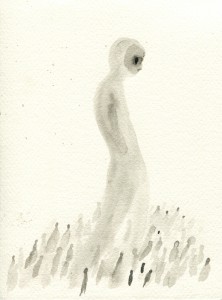On June 24, 2006, Ali Muamar, a member of the Hamas political faction in Gaza, was blindfolded, handcuffed and beaten by Israeli soldiers.

His two sons, Osama and Mustafa, were simultaneously arrested. A day after their kidnapping, Palestinian militants orchestrated a retaliatory attack on an Israeli military outpost. Two Palestinian fighters and two Israeli soldiers were killed. In the process, one Israeli soldier, Gilad Shalit, was captured and taken hostage.
On October 18 of this year, Shalit, who was held captive by Hamas for the past five years, was released during a highly publicized and controversial prisoner swap. More than 1,000 Palestinian prisoners are in the midst of being gradually released in exchange for Shalit. Meanwhile, the Muamar brothers remain in prison, unheard from and untried.
If you follow international news and politics, you have likely heard of Sergeant Gilad Shalit. After all, his story dominated headlines for weeks and his captivity prompted international outcry. However, unless you follow dissident political theorist Noam Chomsky or journalist Jonathan Cook, this is probably your first time hearing of the Muamar brothers.
That is because, as Chomsky explained during a lecture at Barnard College the day of the first phase of the prisoner exchange, “Jewish Israelis are people and Palestinians are unpeople.”
The term “unpeople” was coined in journalist and historian Mark Curtis’ book “Unpeople: Victims of British Policy.” In it, he details how the British colonial mindset, carried into the modern era, sanctions certain people to be expendable and worthless. In the path of ruthless foreign policy, “unpeople” are abused, oppressed and, more importantly, dehumanized, so that the rest of us don’t speak out against it.
Treating certain people as “unpeople” isn’t just ignorant and unjust — it is a harmful outlook that allows us to morally justify the oppression of certain societies and cultures. While living in a Palestinian refugee camp in the West Bank the year before college, a middle-aged friend asked me if I would carry his family’s story back to the United States. The family runs a kindergarten near Bethlehem that struggles to thrive under Israeli occupation, and I promised that I would tell people about his kindergarten and also try to help him find American volunteers. “I’m sure no one there will care about us,” he emphatically responded. I told him that people in the United States generally are caring and good people, but simply don’t know what is going on. But the truth is, he was right.
I have spoken to plenty of people who pass off the suffering of Palestinians as something that they are used to, something that has been going on for hundreds of years and is therefore unlikely to change — which is, of course, a myth. Their lives are seen to be expendable to the powerful, as if they are nothing more than obstacles in the way of a greater goal. As Chomsky put it, “we treat them kind of like the ants we step on when we walk down the street.” And though the masses may not support their oppression, the dehumanization of Palestinians has certainly made it easier for us to sit idly by.
With a worldview that weighs the value of some peoples’ lives over that of others, it is no wonder that political leaders across the world, the media and the general public perceived the kidnapping of Shalit to be illegal and unjust while completely ignoring the kidnapping of the Muamar brothers. Journalists resembling paparazzi closely tracked Shalit’s each and every move after his release from captivity. From the moment he entered Egypt from Gaza, he was thrown in front of a camera for an interview before returning to Israel. The remainder of the day’s coverage of the events revolved around, as the Associated Press put it, the “warm homecoming” Shalit was greeted with in Israel.
In that same article, the freed Palestinian prisoners, of which only about 100 people were combatants, are mentioned only minimally. Other newspapers followed suit, mostly focusing on whether or not Israel made a poor choice by freeing more than 1,000 Palestinian “terrorists” who some Israeli officials claim will ultimately hurt Israel. Such Palestinians are not considered fathers, brothers, sons and friends, as was the case for Shalit. Rather, they are objectified as “the price” — indeed a high and unfortunate price — for the exchange of Shalit. The media and government’s bias is clear: the lives of 10,00 Palestinians is less valuable than that of one Israeli soldier.
The age of imperialism and mass colonization may be through, and human slavery has long since been outlawed, but when we view certain people as less than human, we’re keeping the values and ideals of that time period alive. We’re hindering our own improvement and ruining our own ability to advance as humans and create true equality.
We need a deeper grasp of global politics, and we need to be willing to call our government and media to account when they advocate policies and make statements that ignore the suffering of some people. WE need to stop seeing the world through tainted lenses that accept the human rights of some while neglecting the rights of others.






